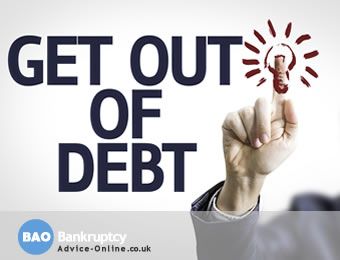Dealing With Debt Collectors
Debt Help
Dealing With Debt Collectors
Have you received a debt collection letter or are you getting constant calls from a debt collection agency (DCA)?
In this guide we'll cover "what can debt collectors do".
Why they keep calling and sending you letters.
Most importantly, we'll show you how to deal with debt collection agencies.

Why are they contacting me?
If your debts have been in arrears for a while, a lender has issued a default notice, or your lenders have lost contact with you, they will probably refer or sell your debt to a debt collection agency to chase the money in.
Stop the letters & calls
Check nowFed up of the constant letters and calls! Take the online test and see how to stop them for good.
What Is A Debt Collection Agency?
Debt collection agencies are companies that specialise in collecting payments of debts owed by individuals or businesses.
Debt collectors usually work in one of two ways:
- The original creditor still owns the debt, and have instructed the debt collector to chase the money for them. The debt collection agency usually gets paid a percentage of what they collect.
- The original creditor has sold the debt to the debt collection agency. The debt collection agency typically pay as little as 10p for every pound of debt they buy, but will chase you for the full amount of the original debt plus interest and costs.
Debt collection in the UK is a booming business. According to leading credit ratings agency Standard & Poor’s, Debt collectors are set to spend £1.5 billion a year buying bad debt from banks and other lenders by 2017, almost doubling their business over five years.
If you're one of the many people being sent constant letters, text messages and not answering your phone without looking at "whocallssme.com" in order to avoid the many (and we mean MANY) phone calls by collection agencies, here are our 11 steps to deal with debt collectors.
11 Steps To Deal With Debt Collectors
- Step 1: Don't Just Ignore Them
- Step 2: Keep Calm
- Step 3: Make Sure You Actually Owe The Debt
- Step 4: Ask For Proof. No proof = No debt!
- Step 5: Don't Fall For Scare Tactics
- Step 6: Take Control Of The Situation
- Step 7: Check Interest and Charges
- Step 8: Negotiate
- Step 9: Get Help
- Step 10: Know Your Time Limits
- Step 11: Don't Restart The Clock
Step 1: Don't Just Ignore The Letters & Calls
Don’t ignore letters or calls from a debt collector. They won’t go away and they’re more likely to take further action if you don’t reply to them. Follow the steps in this guide and with our help you can successfully deal with the problem once and for all.
Step 2: Keep Calm
When you receive an unexpected call from a debt collector it's easy to become flustered, remember that they are calling for one reason and one reason only - to get you to pay.
At this stage you may not even know what the debt is for, whether you owe it, or if unfair charges have been added.
Simply keep the call short and business like, ask them exactly what they want, where the debt they are collecting has come from and how much they believe you owe. Do not get into conversation and do not answer any of their questions. Tell them that you wish only to be contacted only by post - this should prevent telephone calls, which are difficult to keep track of.
Step 3: Make Sure You Actually Owe The Debt
If you have no idea what the debt is for, or doubt the amount they are asking for, check your credit report.
You can get a copy of your credit report online, free of charge, from Noddle.co.uk
It is not uncommon for debt collection agencies to send letters out and call many people with the same name, whilst trying to trace a debtor, so you may not even owe the money they are claiming.
Step 4: Ask For Proof
If you are being chased for a debt, but you don't think you owe the money, or that you have already paid it, you need to challenge the debt collection agency to prove that you do owe the money.
Simply use the "prove the debt letter" template, to ask them to prove that the debt is actually yours. Follow the steps on this page carefully.
It is often the case that they can not prove the debt and therefore it is marked as settled.
If you genuinely do not owe the debt, you should receive a letter syaing that they have dropped it and you will no longer be contacted.
If you do owe the debt then you should look at ways to pay it back, but in a controlled way and on terms you can afford.
Step 5: Don't Fall For Scare Tactics
Some debt collectors may try a range of scare tactics to get you to pay the debt, but it is important to know your rights.
They may threaten to "pass your debt to solicitors" or say that "one of our representatives will visit your home".
Debt collectors aren’t court officials and they don’t have the same powers as bailiffs. They can’t enter your home or take your possessions. They can only write, phone, or on rare occasions visit your home to talk to you about the debt and how to pay it back.
They are not allowed to call you at work, or speak with your colleagues, friend or relatives and they can only call you between 8:00 am and 9:00 pm.

Step 6: Take Control Of The Situation
If you owe the debt, you need to deal with it, it is not going to magically disappear, the letters will start to pile up the phone will keep ringing. Debt collection agencies can also turn up the legal heat pretty quickly.
If you do nothing they are more likely to start Court action to recover their money. This can include applying for a CCJ, charging order or making you bankrupt. So take control of the situation.
Collection agencies will push you to pay the debt in full at once. If that is not an option for you, we can help you draw up a budget and work out how much you can afford to pay. We can then write to the debt collection agency with a copy of your budget, proving there repayment demands are unreasonable.
Once again any offer of payment needs to be sent by writing, so you have a record of what has been agreed.
Step 7: Check Interest and Charges
Usually, the contract you agreed when you took out the loan, credit card or credit agreement will state how much interest can be added to your debt when you default, or when the debt is passed to a third party debt collection company.
Often interest and charges are frozen by the debt collection company, but we have heard horror stories where the debts have increased by thousands of pounds.
If you think the debt has increased by an unreasonable amount, you should check the T&C's of your agreement, or ask for a copy of your original agreement from the debt collection agency.
One of our advisors can easily help you with this.
Step 8: Negotiate
If you know you owe the money, and have some funds available, it is always worth asking the debt collection company if they will settle for an amount less than they are asking for.
The DCA's usually buy the debt for a lot less than the amount they chase you for, so reduced full and final settlements can often be achieved.
One of our advisors can negotiate this for you if you prefer not to deal with the debt collection agency yourself.
Step 9: Get Help
So you need to check the debt exists, draw up a budget that's fair and then negotiate with the debt collection agency.
All of this is possible to do yourself, but many people find it easier to get help
Letters or calls from a collection agency are often also a warning sign that your debts are getting out of control.
Need Help With Debt Collectors?
If you want more help on dealing with debt collectors, call our FREE Helpline on 0800 368 8231 (freephone, including all mobiles) or take the online debt test and find your best solution.
Step 10: Know Your Time Limits
Creditors may say that court action can be taken against you if you don't pay them, and whilst this is true, there are time limits - typically 6 years - in which a creditor can sue you over a debt.
If the time limit has passed, the debt is known as ‘statute barred’. This means that the creditor can’t get a court to force you to pay the debt, and they shouldn’t keep chasing you once you’ve asked them not to.
The rules on ‘statute barred’ debt are quite complicated, an advisor will be able to help you check if this applies to your debts.
Step 11: Don't Restart The Clock
Debt Collectors can't start the clock again when they buy or are passed the debt, but you can restart the clock or wind it back by making a payment on an old debt, or acknowledging that you owe the money. This is why it is important you tread with caution when dealing with debt collectors, and should seek help from an expert to ensure you have the best possible outcome.
More Debt Advice:
Which Debts Are Not Included In Bankruptcy?
ReadMost people think that if they go bankrupt, it will get rid off all of their debts. However, this is not always the case. You may still be liable for some debts...

How Long Does It Take To Go Bankrupt?
ReadSo how long does it take to go bankrupt? Bankruptcy can be implemented very quickly but it can vary depending on your individual circumstances...
What is a debt relief order? (DRO)
ReadWondering if you can get a debt relief order, sometimes referred to as DRO? This section explains what a debt relief order is, and the steps you need to take to apply for a debt relief order...






